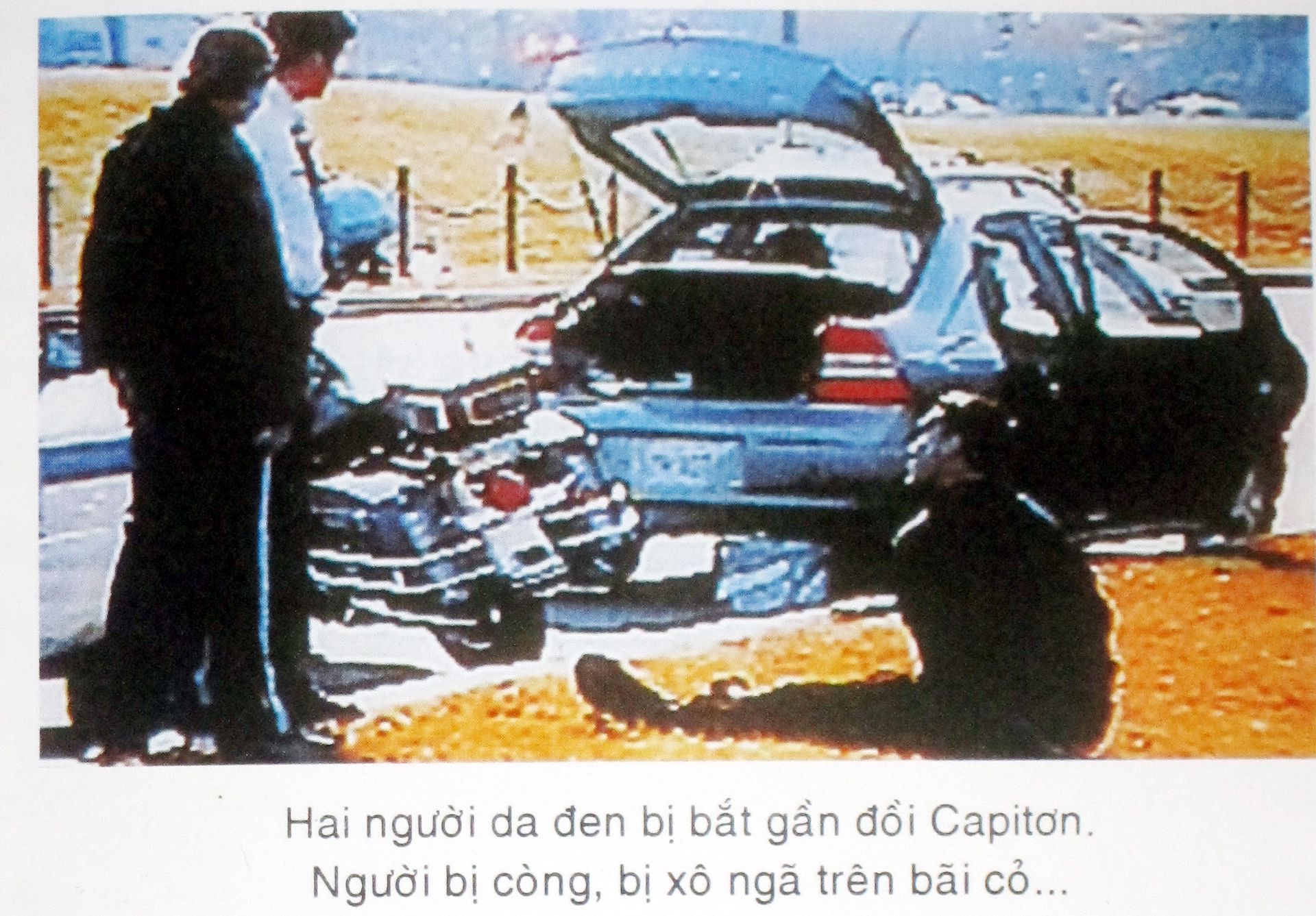CHAPTER II. THE UNITED STATES - 4
Due to our tight schedule in New York, we only had one day to visit the capital, Washington. Our journey began at 5:30 a.m., as our car cruised along a wide and smoothly paved highway with 4 to 6 lanes. It's worth noting that Americans have a commendable commitment to preserving their natural surroundings. Along the way, we passed through vast stretches of forests adorned with vibrant green, red, and yellow leaves, resembling a magnificent oil painting. While the United States takes care of its own natural beauty, it's often criticized for not prioritizing global environmental concerns. The U.S. is accountable for a significant quarter of worldwide industrial emissions. Nevertheless, earlier this year, President Bush announced the nation's withdrawal from the Kyoto Protocol, citing perceived unfairness and its detrimental impact on American manufacturers. This Protocol mandates that industrialized countries reduce their emissions from industrial production activities, including cutting carbon dioxide emissions by an average of 5.2% from 1990 to 2012. Consequently, the U.S. seemingly allows itself to release toxic substances into the atmosphere while many other nations strive to reduce environmental harm stemming from industrial production.
On our route, we encountered gas stations along with breakfast and refreshment stops. Approximately halfway through our journey, we paused at a station to change drivers. In the U.S., regulations prohibit passenger drivers from continuously operating vehicles for extended hours, necessitating these stations for drivers to take shifts. An elderly and tall driver emerged from a small ground-floor room, carrying a bag. He took his place in the car, while our previous driver collected his belongings and headed into the room to rest. He would await our return journey to New York. As our car proceeded towards the Potomac River, the tranquil waters stretched out before me, evoking memories of a time when America was embroiled in a contentious war in Vietnam. It was during this period that Morrison, an American citizen, self-immolated to protest the war, and our poet To Huu immortalized him in a poem alongside the Potomac River. Presently, the U.S. is engaged in conflict in Afghanistan, and there are Americans advocating for peace and opposing the war. While strolling through the streets of Washington, I encountered a group of pedestrians holding banners, passionately urging the U.S. to cease its bombing campaign in Afghanistan. In contrast to New York, the scenery in Washington exudes a sense of tranquility with fewer, shorter buildings, abundant trees, and open spaces. The city boasts rivers, lakes, and a more serene atmosphere, providing a welcome escape from the bustling and congested streets. You can enjoy expansive, undulating lakes, lush lawns, shaded gardens, and the delightful sight of squirrels frolicking in the grass. People leisurely take strolls on Capitol Hill, visit the Lincoln Memorial, explore museums, and tour the Capitol Building. The only hustle and bustle comes from the diligent security forces. Recently, near Cape Town, I witnessed two police cars pulling over a civilian vehicle, apprehending two men dressed in black, handcuffing them, and placing them on the grass. The nature of their alleged crime remained unclear, leaving one to wonder if they were mere suspects.

As we traversed the streets, it was impossible to ignore the pervasive police presence, with police cars and groups of officers armed with guns and walkie-talkies stationed throughout the city. The Pentagon area, in particular, was heavily fortified with both military and police personnel, making it only accessible from a distance, allowing us to catch just a glimpse of its imposing structure. In the vicinity of the White House, a dense cordon of police officers restricted access, preventing people from getting up close as they had done in the past. The Capitol area appeared relatively deserted, with the Houses of Congress closed due to the U.S. government's declaration of anthrax infiltration. Nonetheless, visitors to the Capitol still gathered nearby to admire the iconic building and capture photographs. In a bold display of artistic expression, a group of artists even set up a loudspeaker and performed songs right in the front yard of the National Assembly hall. Yet, despite these visible signs of life, the U.S. government was conveying to the world that the American people were gripped by fear amid a campaign of biological terrorism.
Contrary to the American narrative, anthrax was not running rampant in the United States, but rather a propaganda tool aimed at shaping public opinion, causing concern for America while overshadowing the plight of the Afghan people whose lives were shattered under the weight of American bombs and bullets. When you compare the relatively small number of American anthrax-related casualties to the thousands of Afghans who perished due to American military actions during the same period, the contrast is stark. One cannot help but question whether an American life is deemed to be worth a hundred times more than that of an Afghan.
Our visit also led us to memorial sites dedicated to American soldiers who lost their lives in Vietnam and North Korea. Even today, I vividly recall numerous Americans searching for the names inscribed on the stone plaques that commemorated these soldiers' sacrifices. Among them was an elderly woman, meticulously pressing a piece of paper against one such plaque and gently rubbing it with a pencil to capture the full name of a particular American soldier. When she completed this act, she sat down, cradling the piece of paper, her eyes brimming with tears. It left me pondering about the profound connection she felt with the individual engraved on the cold stone and why she was only able to visit this memorial now. Does the U.S. government realize that while waging wars of aggression, inflicting pain and mourning on other nations, it is also sowing pain and mourning within its own people?
Bạn đang đọc truyện trên: truyentop.pro